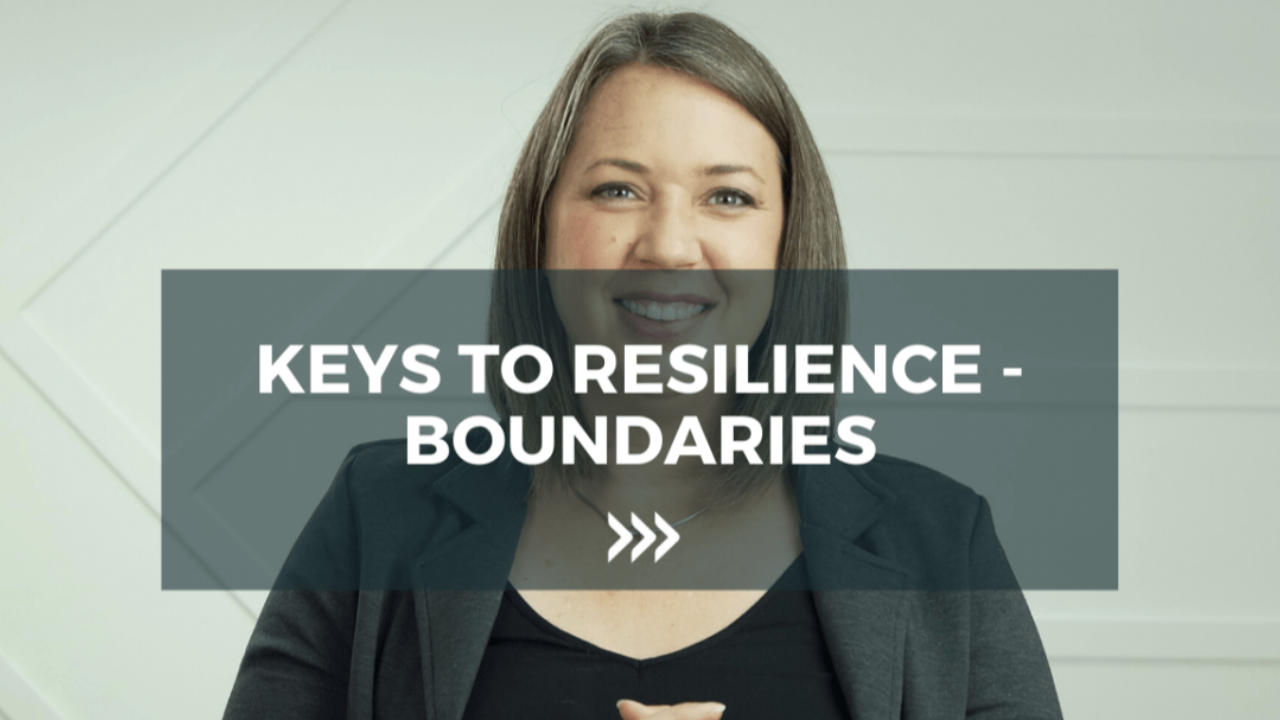KEYS TO RESILIENCE – BOUNDARIES
Jul 18, 2023
BOUNDARIES ARE A KEY TO BUILDING RESILIENCE. THEY ALLOW US TO AVOID THE TRAP OF OFFENCE OR TAKING ON THE ISSUES OF OTHERS AS WE PROVIDE SUPPORT.
A person with healthy boundaries takes responsibility for his/her own life and allows others to live theirs.
This past winter we got a puppy. Eight months in and we can’t imagine life without her.
I was the most resistant to getting a dog, especially a puppy. Mom is always the one left to do the work. But I succumbed, knowing that my children would cherish growing up with a pet. Plus, this is a great opportunity for them to learn responsibility.
A big part of training Ginny was teaching her boundaries. What was acceptable and unacceptable behaviour in our house. No going on furniture. Sleep in your crate. What is a toy and safe to chew on and what is not and what is an acceptable way to greet people who come to the door.

I have to say that after 8 months of training she really is a great dog. But it took time, intentionality, and patience to train her.
WHEN WE ARE ABLE TO MAINTAIN HEALTHY BOUNDARIES WE ARE STRENGTHENING OUR RESILIENCE.
We are practicing disciplines that grow our skills and help us avoid hardships. When we become more resilient, we are able to bounce back quickly when facing life’s challenges.
Developing and maintaining boundaries is hard work. It can feel as though it goes against our human nature. Naturally, we want to control others, or even avoid responsibility. But the Bible instructs us to control ourselves (Titus 2:12).
Personal boundaries help limit our selfish tendencies to control or manipulate others. Likewise, boundaries protect us from those who have no self-control and who wish to control us. A person with clear, healthy boundaries communicates to others what is and is not acceptable; telling them that, “This is my jurisdiction, and you have no right to interfere.”
Throughout my 15 years supporting and counselling others as a social worker I have repeatedly witnessed the tendency of clients and co-workers to get stuck on other people’s issues. They take on another’s offence or accept responsibility for other people’s circumstances.
As supporters and caregivers, we can hear very difficult and heartbreaking stories. And if you are a compassionate and empathic person it can be difficult not to take that home with you. We can find ourselves thinking about them during off-hours. Perhaps you stay late or go the extra mile for the person you’re supporting, crossing various boundaries along the way.
This may sound harsh to hear, but for your own well-being and the empowerment of those you’re supporting, it needs to be said. When you support other people through challenges you need to maintain strong boundaries and not accept responsibility for their circumstances.
You can slip very quickly into being a rescuer and savior, while maintaining good intentions. This creates a hardship for yourself and it exhibits the call for self-control, which the Bible instructs us to have. We step over lines, trying to control others, all in the name of support.
If you have done any amount of support or care work with others you, too, have likely seen this in those you come to you.
People are hurt, offended, and overwhelmed by the issues of others. I want to offer a resource on how to identify and discuss healthy boundaries while valuing people’s passion for justice.
HERE is a short quiz that opens the conversation about where people are at with their boundaries. These types of quizzes are less invasive than asking direct questions as questioning them can be perceived as a challenge.
Maintaining boundaries can be challenging for some because saying no is very difficult. HERE is a post all about how to say no without offending anyone or feeling guilty. Saying no is a skill that needs to be developed and was modelled by Jesus (Luke 5)
Maintaining boundaries is a discipline that impacts every area of our lives. From our relationships, work, and time to how we care for ourselves. If these boundaries are weak and undefined within our jurisdiction then we become more susceptible to challenges that cause us to get stuck.
But with time, intentionality and patience, we can develop the skill of maintaining boundaries, which strengthens our resilience and improves many areas of our lives.

